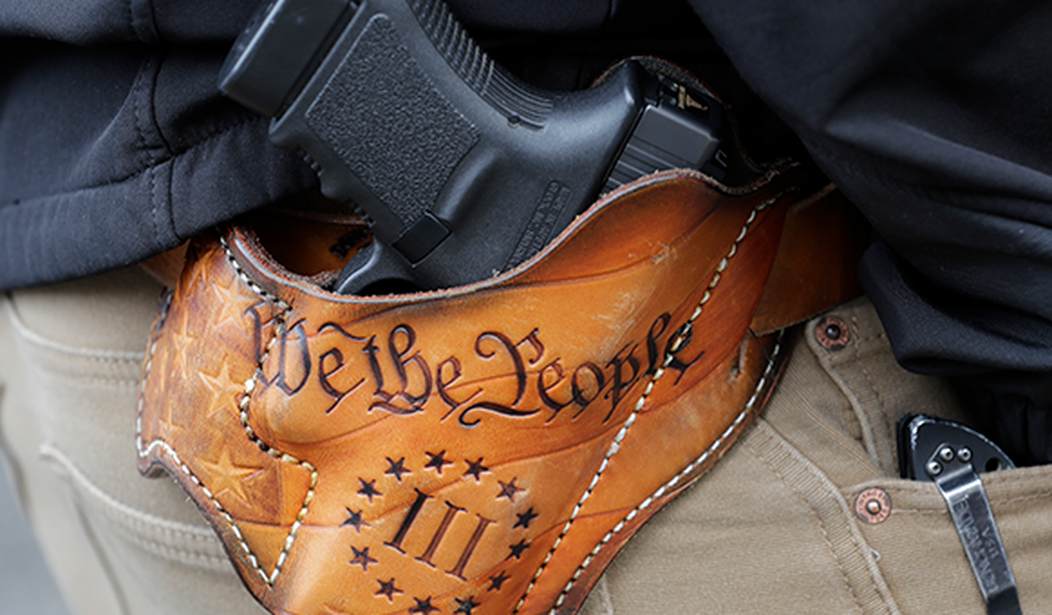An Obama-appointed federal judge ruled earlier this month that an illegal immigrant was wrongly barred from possessing a firearm.
Prosecutors charged Heriberto Carbajal-Flores in 2020 under a federal law, 18 U.S.C. § 922(g)(5), that prohibits illegal immigrants from carrying guns or ammunition after he was found with a semi-automatic firearm despite knowing he was “unlawfully in the United States.”
“U.S. District Judge Sharon Johnson Coleman rejected two motions to dismiss, but the third motion, based on a 2022 U.S. Supreme Court ruling, triggered dismissal of the case on March 8,” The Epoch Times reports.
In her ruling, the judge said the “noncitizen possession statute…violates the Second Amendment as applied to Carbajal-Flores.”
Lawyers for Mr. Carbajal-Flores had argued in the most recent motion to dismiss that the government could not show that the law in question was “part of the historical tradition that delimits the outer bounds of the right to keep and bear arms.”
In 2022, the Supreme Court determined that the U.S. Constitution’s Second Amendment “presumptively protects” conduct that is covered by the amendment’s “plain text.”
To justify regulations, governments must show that each regulation “is consistent with this nation’s historical tradition of firearms regulation,” the high court said at the time. “Only if a firearm regulation is consistent with this nation’s historical tradition may a court conclude that the individual’s conduct falls outside the Second Amendment’s ‘unqualified command.’
“Lifetime disarmament of an individual based on alienage or nationality alone does not have roots in the history and tradition of the United States,” Mr. Carbajal-Flores’ lawyers argued.
They pointed to several rulings interpreting the Supreme Court’s decision, including an appeals court ruling that declared stripping a man convicted of a nonviolent crime or his gun rights was unconstitutional.
The government opposed the motion, noting that neither cited decision applied to illegal immigrants and that the defendant ignored other rulings that did […]
But Judge Coleman ruled for the defendant, finding that the laws against untrustworthy people contained exceptions for people who signed loyalty oaths and were deemed nonviolent. (The Epoch Times)
Recommended
The issue over who qualifies as "the people" is being debated within the Second Amendment community.
As the Supreme Court explained in D.C. v. Heller, “the People” is a term that “unambiguously refers to all members of the political community.” It “refers to a class of persons who are part of a national community or who have otherwise developed sufficient connection with this country to be considered part of that community.”
Someone who just entered the United States illegally has not developed any sufficient connection with the country (Konstadinos Moros)
And on the other side...
Critically, when Heller referred to the “political community,” it did so in the context of dismissing the argument that the Second Amendment was a “collective right,” and not an individual one. The case Heller used to illustrate its point was US v. Verdugo-Urquidez, which declined to apply Fourth Amendment protections to a search by US authorities in Mexico, of the Mexican residence of a Mexican citizen who had no voluntary attachment to the United States. The “political community” illustration in Heller, when it pointed to Verdugo-Urquidez, was illustrating that “the people” is broadly understood in the fundamental rights context, and Verdugo-Urquidez shows an example of something beyond the boundary: an individual in another country with no voluntary connection to ours.
In contrast, citizenship at the time of the founding mattered for little aside from seeking political office, and was often limited to white freeholders. There is no historical evidence suggesting that white commoners, the majority of which could not vote, were without the right to arms. To the contrary, early militia acts compelled their armament based on able-bodiedness, not any political hook.
I see no way the “political community” dicta in Heller was intended to reverse hundreds of years of precedent where every other right of “the people” was respected within the borders of the United States without regard to whether the individual victim of state action was able to vote. ()
And here is mine. https://t.co/OFjdGGi39w
— Kostas Moros (@MorosKostas) March 17, 2024

























Join the conversation as a VIP Member